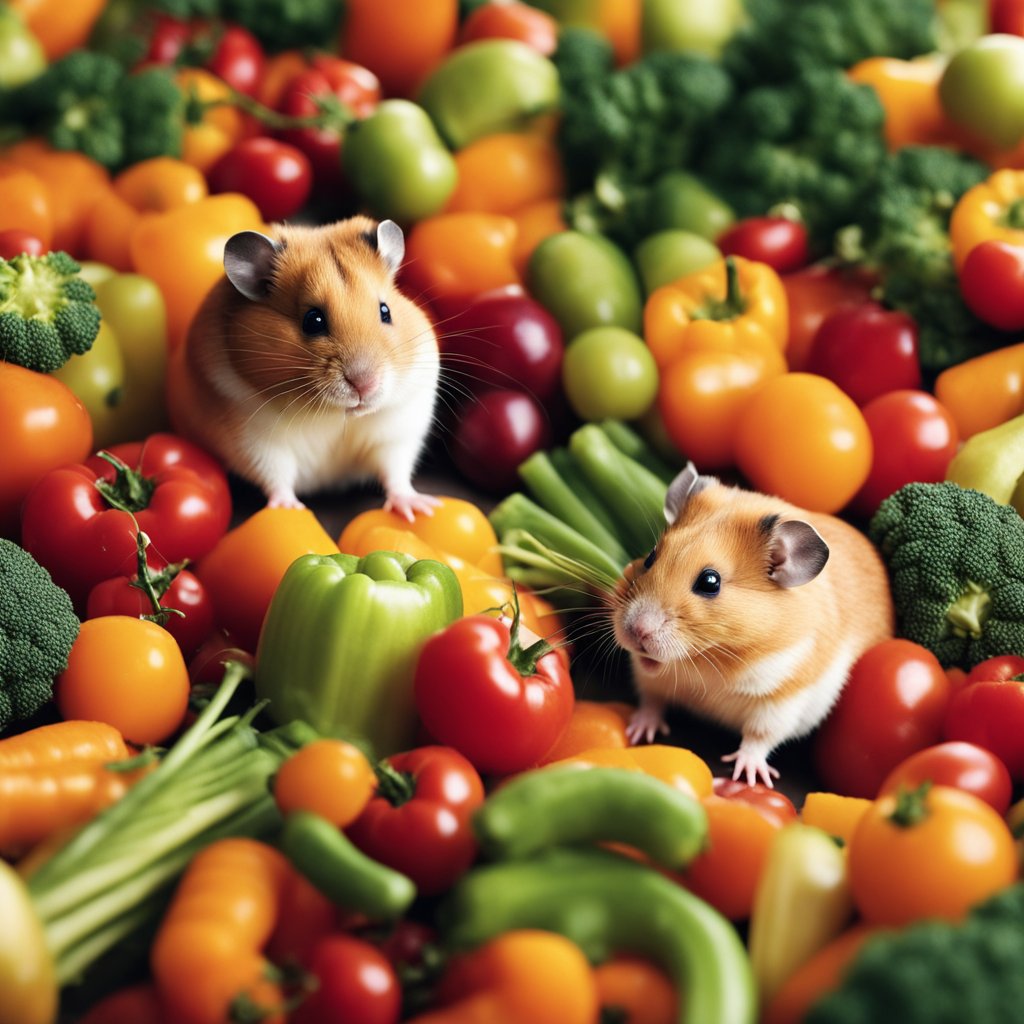Do Hamsters Need Veggies Everyday ? A Clear Answer.
Do hamsters need veggies everyday? If you’re a hamster owner, you might be wondering if you should feed your pet vegetables every day. The answer is yes, hamsters require fresh vegetables in their diet on a daily basis. Vegetables are an essential source of vitamins, minerals, and fiber for hamsters, and they help to keep your pet healthy and happy.
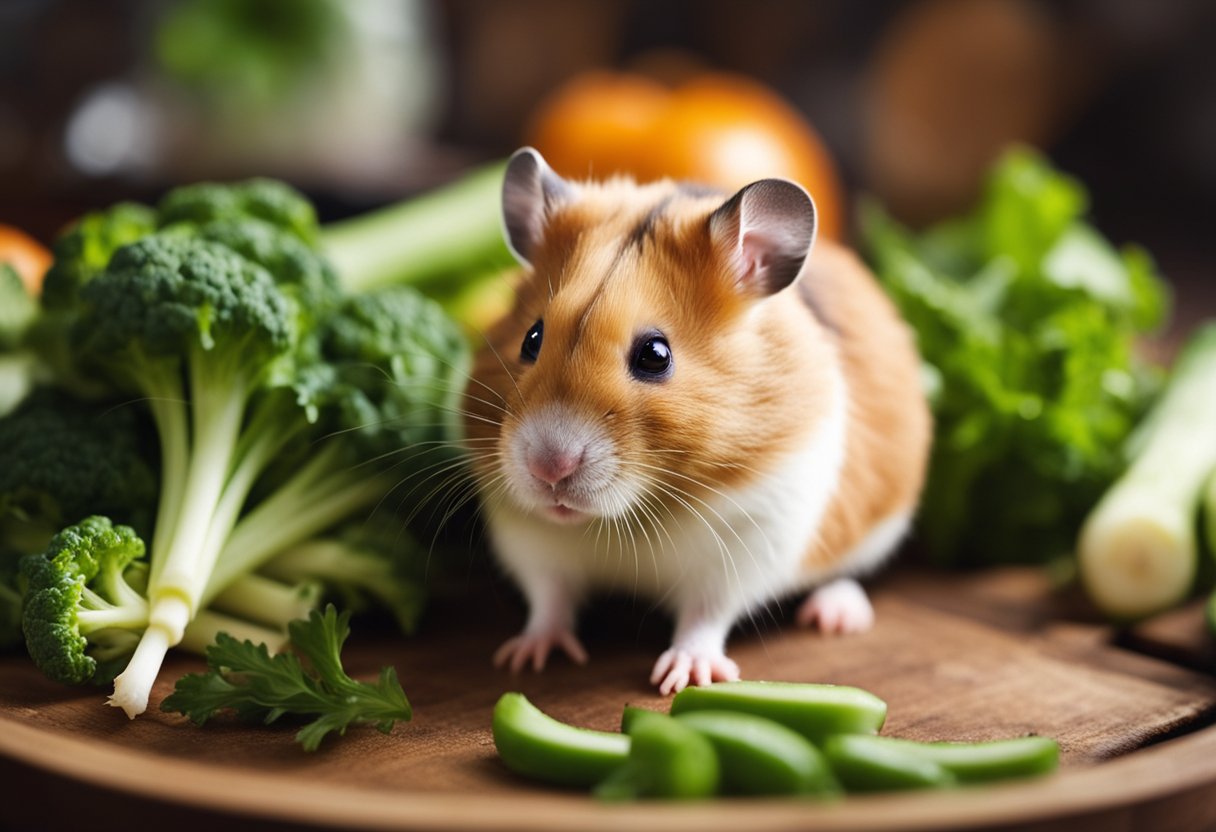
Hamsters are omnivores, which means they eat both meat and plants. In the wild, they eat a variety of foods, including seeds, insects, and vegetation. As pets, it’s important to provide them with a balanced diet that meets their nutritional needs. Feeding your hamster fresh vegetables every day is an important part of their diet, and it helps to ensure that they get the nutrients they need to stay healthy.
Key Takeaways
- Hamsters require fresh vegetables in their diet on a daily basis to meet their nutritional needs.
- Choosing the right vegetables is important to ensure your hamster stays healthy.
- A balanced diet that includes fresh vegetables is essential for your hamster’s overall health and well-being.
Nutritional Requirements of Hamsters
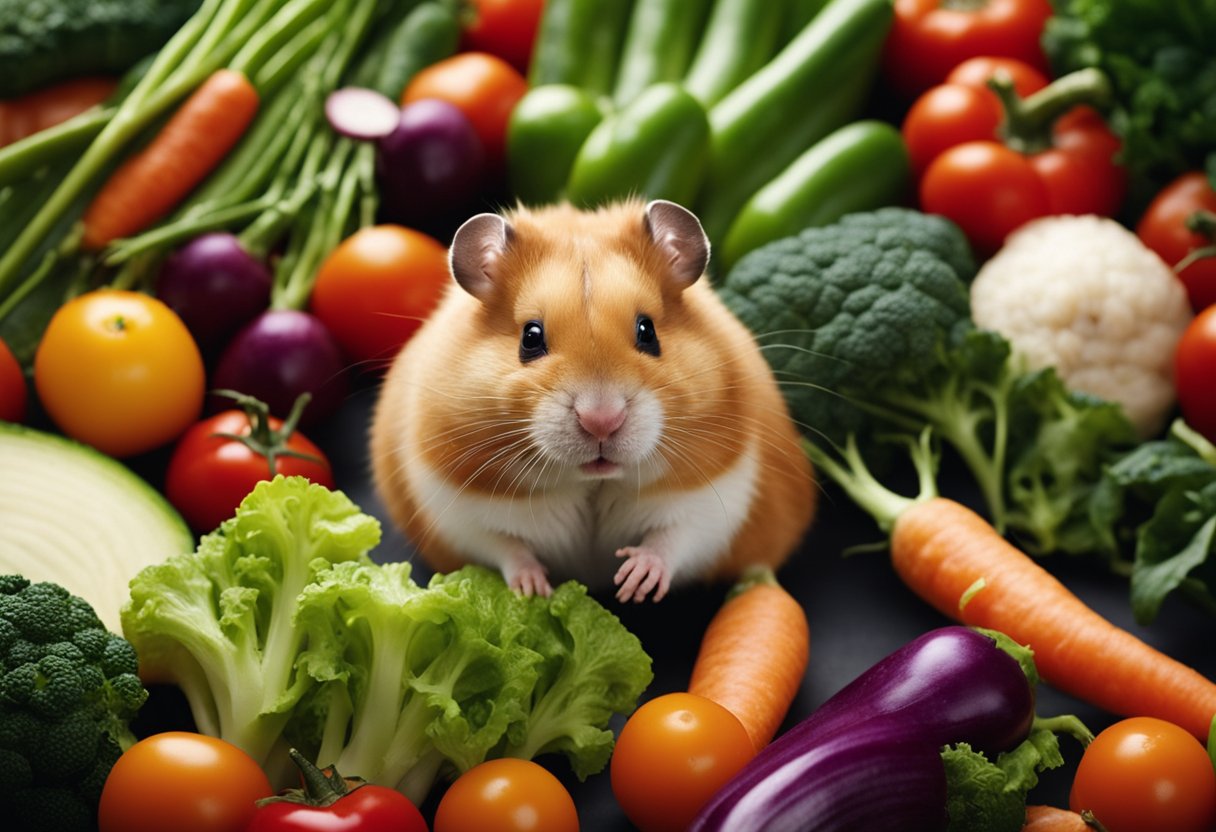
Hamsters are omnivorous animals and require a balanced diet to maintain good health. A well-rounded diet for hamsters should include a variety of foods, including vegetables. While hamsters can survive without vegetables, they do need them to stay healthy.
Importance of Vegetables in a Hamster’s Diet
Vegetables are an important source of vitamins, minerals, and fiber for hamsters. They provide essential nutrients that help keep hamsters healthy and active. Vegetables also help regulate digestion and prevent constipation, which can be a common problem in hamsters.
Some of the essential vitamins and minerals that hamsters can get from vegetables include:
- Vitamin A: Helps maintain healthy vision, skin, and immune system.
- Vitamin C: Helps maintain healthy skin, immune system, and connective tissues.
- Calcium: Helps maintain strong bones and teeth.
- Potassium: Helps regulate fluid balance and nerve function.
- Zinc: Important for immune function and wound healing.
Recommended Vegetable Intake for Hamsters
It is recommended to feed hamsters a small amount of fresh vegetables every day. A variety of vegetables should be offered to provide a range of nutrients. A good rule of thumb is to offer a small piece of vegetable that is about the size of your hamster’s head.
Some of the best vegetables for hamsters include:
- Carrots: Small raw or steamed chunks.
- Broccoli: Occasionally in small, raw or lightly steamed pieces.
- Celery: Small pieces as a crunchy treat.
- Cucumber: Sliced into small pieces.
- Kale: Small amounts of raw or steamed leaves.
- Spinach: Small amounts of raw or steamed leaves.
It is important to remember that too many vegetables can cause diarrhea, stomach aches, and other health issues. Also, it is best to serve new vegetables daily rather than the same one daily to provide a variety of nutrients.
In addition to vegetables, hamsters should be fed a high-quality pellet diet and a variety of nuts and seeds. Fresh water should always be available. By providing a balanced diet that includes vegetables, you can help ensure your hamster stays healthy and happy.
Choosing the Right Vegetables
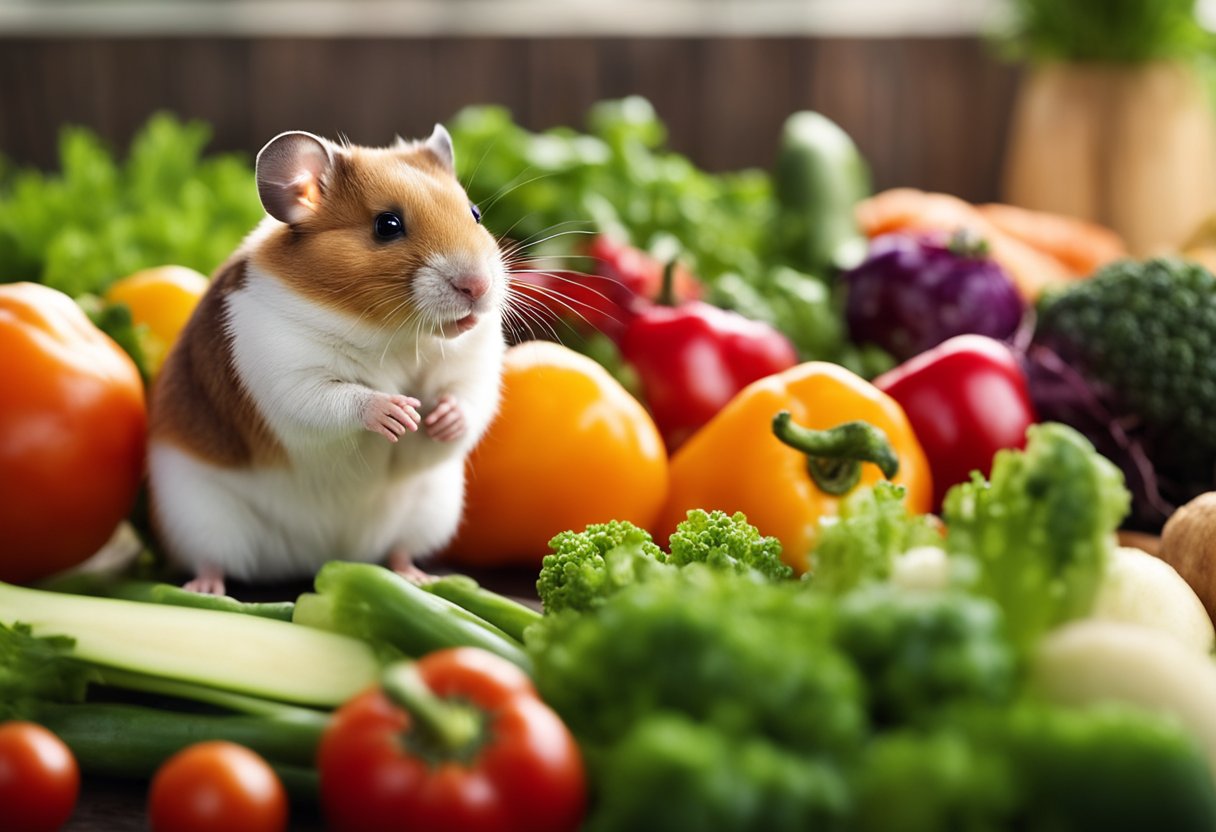
Hamsters need vegetables in their diet to stay healthy. However, not all vegetables are safe for them to eat. In this section, we will discuss safe vegetables for hamsters and vegetables to avoid.
Safe Vegetables for Hamsters
Here are some vegetables that are safe for hamsters to eat:
| Vegetable | Nutritional Benefit |
|---|---|
| Carrots | High in vitamin A and fiber |
| Broccoli | Rich in vitamins C and K, and fiber |
| Cucumber | High in water content and vitamin K |
| Bell peppers | Rich in vitamin C and antioxidants |
These vegetables should be served in small amounts and should be introduced gradually to avoid digestive problems. It is recommended to serve new vegetables daily rather than the same one daily.
Vegetables to Avoid
Some vegetables are not safe for hamsters to eat. Here are some vegetables that you should avoid feeding your hamster:
- Onion: Can cause digestive problems and even anemia in large amounts.
- Garlic: Can cause digestive problems and even be toxic to hamsters in large amounts.
- Potato: Contains a high amount of starch and can cause digestive problems.
- Rhubarb: Contains oxalic acid, which can be toxic to hamsters.
In conclusion, feeding your hamster a variety of safe vegetables in small amounts can help keep them healthy. However, it is important to avoid feeding them vegetables that are not safe for them to eat.
Resources
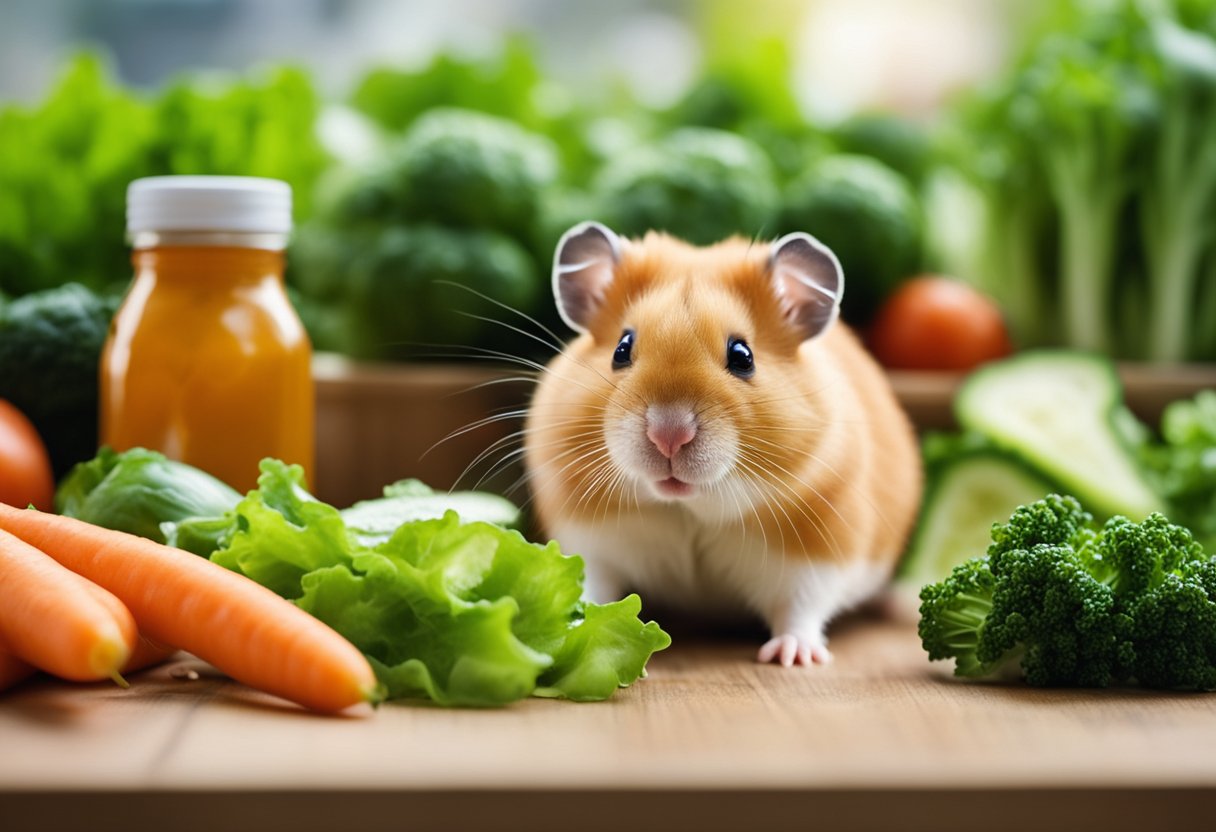
If you are a new hamster owner, you might be wondering what kind of food you should be feeding your pet. While hamsters can survive on a diet of just pellets, it is important to include fresh vegetables in their diet as well. Vegetables contain essential vitamins and minerals that are important for your hamster’s overall health.
According to Hamsters Hub, hamsters can eat vegetables every day, but it is important to serve them in small amounts. Overfeeding your hamster with vegetables can cause stomach problems, diarrhea, and other health issues. It is also recommended to serve a variety of vegetables rather than the same one every day.
Some of the best vegetables for hamsters include carrots, cucumber, bell pepper, and broccoli. These vegetables are safe for hamsters and provide important nutrients that are essential for their health. However, it is important to avoid feeding your hamster vegetables that are high in oxalates or nitrates, such as spinach, parsley, and beet greens.
In addition to vegetables, hamsters also need a diet that includes protein, fats, and fiber. Pellets are a good source of nutrition for hamsters, but it is important to choose high-quality pellets that contain a variety of ingredients. You can also feed your hamster occasional treats like mealworms, boiled eggs, and nuts.
To ensure that your hamster is getting the proper nutrition, it is important to consult with a veterinarian who specializes in small animals. They can provide you with personalized advice on what to feed your hamster based on their individual needs.
Overall, including vegetables in your hamster’s diet is important for their overall health and well-being. By serving a variety of vegetables in small amounts, you can ensure that your hamster is getting the nutrition they need to thrive.
Conclusion
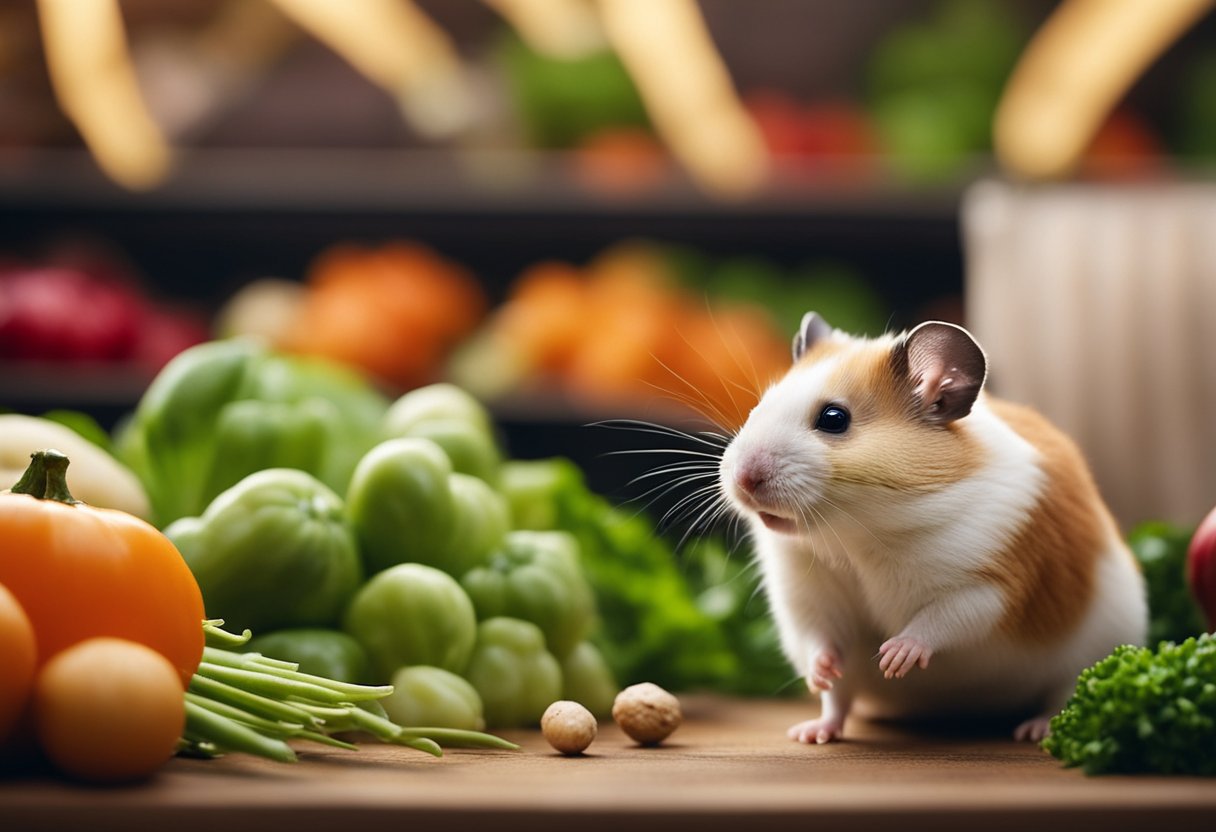
In conclusion, it is clear that incorporating vegetables into your hamster’s diet is important for their overall health and well-being. While hamsters are primarily seed eaters, fresh vegetables and fruits provide a wealth of essential nutrients that are crucial to a hamster’s health.
It is recommended that you serve new vegetables daily rather than the same one daily. A lot of vegetables can cause diarrhea, stomach aches, and other health issues if served in large amounts. Therefore, it is important to avoid overfeeding and choose appropriate foods to prevent digestive problems.
A well-rounded hamster diet that includes high-quality pellets, veggies, and a variety of nuts and seeds will provide the necessary minerals and vitamins. You should also ensure that your hamster has access to fresh water at all times and monitor their weight to prevent obesity.
Overall, by providing a balanced diet that includes fresh fruits and vegetables in moderation, you can ensure that your hamster stays healthy and happy.
Frequently Asked Questions
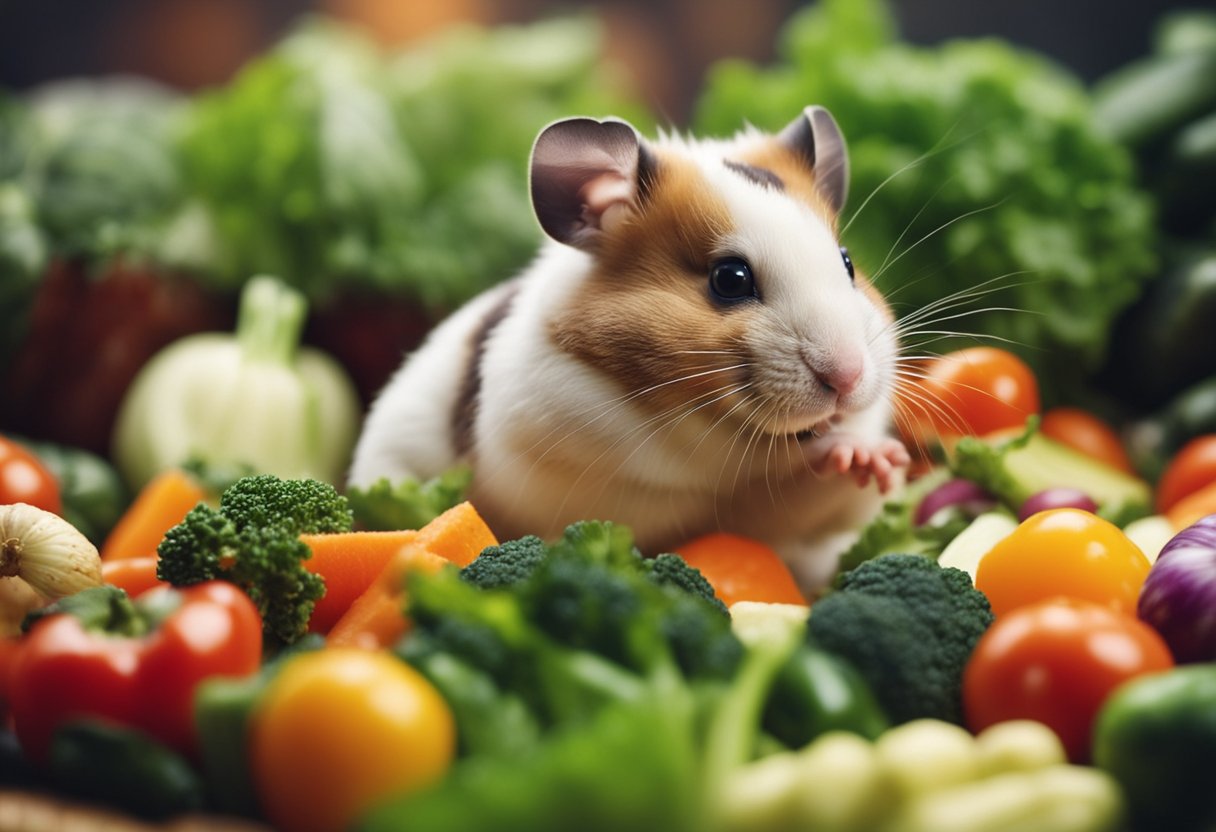
What variety of vegetables are safe for hamsters to consume?
Hamsters can consume a variety of vegetables, but some are safer and more nutritious than others. Safe vegetables for hamsters include leafy greens such as spinach, kale, and lettuce, as well as carrots, cucumbers, and broccoli. You can also feed your hamster small amounts of zucchini, bell peppers, and peas. However, avoid feeding your hamster onions, garlic, and other vegetables that are high in sulfur, as they can cause digestive problems.
How frequently should vegetables be included in a hamster’s diet?
Vegetables should be included in your hamster’s diet daily, but in small amounts. Hamsters have a sensitive digestive system, and too much of any food can cause digestive issues. A good rule of thumb is to feed your hamster one to two tablespoons of vegetables per day, depending on their size and weight.
Are there any vegetables that are harmful to hamsters?
Yes, some vegetables can be harmful to hamsters. Avoid feeding your hamster vegetables that are high in sugar or starch, such as corn, peas, and potatoes. These foods can cause weight gain and other health problems. Also, avoid feeding your hamster vegetables that are high in oxalates, such as spinach and kale, as they can cause kidney stones.
Can hamsters have a balanced diet with human foods, and what are the limitations?
While hamsters can eat some human foods, it is important to remember that they have different nutritional requirements than humans. A balanced diet for a hamster should consist of a variety of foods, including high-quality pellets, fresh vegetables, and occasional treats such as fruits and nuts. However, avoid feeding your hamster foods that are high in fat, sugar, or salt, as they can cause health problems.
What fruits are appropriate for hamster consumption?
Hamsters can eat a variety of fruits, but like vegetables, some are safer and more nutritious than others. Safe fruits for hamsters include apples, bananas, blueberries, strawberries, and watermelon. However, avoid feeding your hamster citrus fruits, as they can cause digestive problems.
What constitutes a well-balanced diet plan for a hamster?
A well-balanced diet plan for a hamster should consist of high-quality pellets, fresh vegetables, and occasional treats such as fruits and nuts. Pellets should make up the majority of your hamster’s diet, with vegetables and treats making up the rest. It is important to feed your hamster a variety of foods to ensure they are getting all the nutrients they need. Remember to always provide fresh water for your hamster, and avoid overfeeding or underfeeding them.
